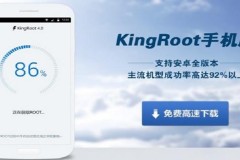- Latest edition of Haleon Pain Index finds half (49%) of people in pain feel stigmatised[1][2]
- 42% regularly feel lonely due to their pain, and one third feel serious loneliness (based on UCLA loneliness scale)[3]
- 32% of people living in pain fear they will be judged
- Women, people of colour and the LGBQ+ community are worst affected
- Gen Z more likely to feel unheard than Baby Boomers
LONDON, Sept. 28, 2023 (GLOBE NEWSWIRE) -- A new study of 18,097 people across 18 countries has discovered that society has grown less tolerant of people in pain, despite the effects of COVID-19 boosting global health awareness.
The fifth edition of the Haleon Pain Index (HPI)[1], conducted by consumer health company Haleon, suggests that attitudes towards pain in post-pandemic society are now more judgemental and less tolerant, with half (49%) of those in pain feeling stigmatised and a third (32%) fearing they will be judged about their pain.
The global index has been exploring the real impact pain has on people’s lives for almost a decade. This year’s study has found that, since the first edition in 2014, the social and emotional impact of pain has grown by nearly 25%, with stigma and social isolation arising from everyday pain increasing worldwide. 42% of people questioned said they regularly experience loneliness when in pain. Feelings of serious loneliness emerged globally, with 38% of people in mainland China, 33% in Australia and 32% in the UK reporting this. This coincides with warnings about the public health impacts of loneliness and social isolation issued by the World Health Organisation[4] and the Loneliness Epidemic[5] pointed out in spring 2023.
Dr Linda Papadopoulos, Psychologist and Author, commented: “Everyday pain is a health issue that can easily be dismissed or trivialised. Many don’t realise its effects can be much worse than the symptoms themselves. The result of loneliness and mental health impact caused by lack of empathy and being treated differently is only worsening. As a society, we need to improve empathy and understanding in a world that is continuing to harden to these issues.”
The HPI discovered that people who already experience bias, discrimination, and exclusion in society are the worst affected by these hardening views on pain.
- 58% of women said their pain had been treated differently, not believed or discriminated versus 49% of men. This is highest amongst women in India (74%), Kingdom of Saudi Arabia (KSA) (74%), Brazil (74%), and mainland China (61%).
- 59% of people of colour said their pain had been treated differently, not believed or discriminated versus 48% of white people. This is highest in Brazil (71%), Poland (64%) and the USA (64%), whilst this is true for 60% in the UK.
- 44% of LGBQ+ people feared that others will make assumptions about them and their pain, compared to 32% of heterosexuals. This is highest in India (61%), USA (54%), Canada (49%) and Australia (48%).
The study also revealed a sharp generational divide in the way people experience pain, suggesting that younger patients struggle most with making their pain known and accessing treatment:
- 70% of Gen Z said their pain had been treated differently, not believed or discriminated, compared to 40% of Baby Boomers. This is highest in India (80%), the USA (79%) and for 74% of UK respondents.
- 45% of Gen Z said being in pain was too much of a taboo for them to speak out, compared to 35% of Boomers.
While the older generation find it easier to express their pain and access treatment, they are the most marginalised when it comes to accessing health-related information online. 45% of 75–84-year-olds said they struggle to access this online because they do not feel confident navigating the internet, compared with 33% overall.
Respondents agreed on the need for a more personalised and compassionate view of pain. More than two thirds (68%) of people said more empathy to address bias and exclusion would make a real difference to their experience of pain. Meanwhile, 69% said they wished doctors and 62% wished pharmacists were better trained on how individual pain is for different patients.
Lisa Jennings, Head of Global Over the Counter Category at Haleon, said: “While pain is a universal human experience, resulting in loneliness and stigma for many, its impact varies considerably between social groups, with the most marginalised amongst the worst affected. Our ambition is to break down the barriers to achieving better everyday health for everyone – irrespective of age, race, ethnicity, gender, sexual orientation, disability and other factors. The HPI shows that we can lessen the social and emotional impact of pain by shifting perceptions and conversations around pain management. That’s why we’re taking action through several programs such as our #ListenToPain initiative which is being rolled out to health professionals across the globe.”
Haleon’s #ListenToPain programme supports health professionals to improve communication with patients and have a focused discussion on pain tailored to the individual. #ListentoPain includes five profiles that describe people with different attitudes and behaviours towards pain management that help health professionals customize their approach with their patients. With continuity of care, truly understanding how pain may change over time means pain management strategies can be evolved and be more effective in the long term.
Media Contacts
For more information on the HPI, or interview requests please contact:
Nina.bass@edelman.com
Amy.barker@edelman.com
For information on Haleon please contact:
gemma.x.thomas@haleon.com
Notes to Editors
About the Haleon Pain Index study
The Haleon Pain Index (HPI) is a proprietary, globally representative, longitudinal social study conducted by Edelman Data x Intelligence (DXI). The study is designed to give a voice to those experiencing pain and assess the evolving state of pain. The study captures the perceived impact of pain on individuals’ everyday lives, their health, their feelings, emotions, motivations and behaviours, putting the human experience at the centre. In its fifth edition, the study assesses health inclusivity barriers to effective pain treatment. The perceptions of over 18,000 respondents across 18 countries were captured as part of the fifth edition.
Markets tracked in HPI 5: Australia, Brazil, Canada, China, Colombia, France, Germany, India, Italy, KSA, Malaysia, Mexico, Poland, South Africa, Spain, Sweden, UK, USA.
The age groups are split into different generations:
- Gen Z: those between 18-26 years old
- Millennials: those between 27-42 years old
- Gen X: those between 43-58 years old
- Boomers 1*: those between 59-66 years old
- Boomers 2*: those between 67-77 years old
- Silent: those between 78-84 years old
1*For the first time, the Haleon Pain Index (HPI) is now capturing the voice of experts, GPs, Pharmacists, and Nurses, in 4 key markets: Australia, Germany, KSA and the USA. In this first edition, we've gathered insights from over 600 experts (150 per market*) through a 15-minute online bespoke survey, exploring their views on pain, their challenges as healthcare professionals and the role they can play in driving positive change.
2*In the USA, our interviews included a mix of physicians and nurses; in Australia and KSA, a mix of physicians and pharmacists, and in Germany, a combination of pharmacists and pharmacists' assistants.
About Listen To Pain
#ListenToPain is a global initiative from Haleon to enable health professionals to maximise their time with patients and help them to better understand a patient’s pain experience — providing the sufferer with a treatment plan that is right for them. Located on Haleon Health Partner, a dedicated digital platform for health professionals, #ListenToPain includes a series of practical tools for better interactions, assessments, and outcomes. These tools and resources for pharmacists will help them understand their patients pain better and navigate conversations around pain management.
Further information and the full range of #ListentoPain resources can we found on www.haleonhealthpartner.com.
About Haleon
Haleon (LSE / NYSE: HLN) is a global leader in consumer health, with a purpose to deliver better everyday health with humanity. Haleon’s product portfolio spans five major categories - Oral Health, Pain Relief, Respiratory Health, Digestive Health and Other, and Vitamins, Minerals and Supplements (VMS). Its long-standing brands - such as Advil, Sensodyne, Panadol, Voltaren, Theraflu, Otrivin, Polident, parodontax and Centrum - are built on trusted science, innovation and deep human understanding.
For more information, please visit www.haleon.com.
___________________________________________________
1 Haleon. Pain Index. 2023. Data on file.
2 The Haleon Pain Index is formerly known as the Global Pain Index.
3 Russell, D, et al.,1978. Developing a measure of loneliness. Journal of Personality Assessment, 42, 290-294. Available: https://fetzer.org/sites/default/files/images/stories/pdf/selfmeasures/Self_Measures_for_Loneliness_and_Interpersonal_Problems_UCLA_LONELINESS.pdf. [2023, September 18].
4 World Health Organization (WHO). N.d. Social Isolation and Loneliness. Available: https://www.who.int/teams/social-determinants-of-health/demographic-change-and-healthy-ageing/social-isolation-and-loneliness [2023, September 18].
5 Centers for Disease Control and Prevention. 2023. Health Risks of Social Isolation and Loneliness. Available: https://www.cdc.gov/emotional-wellbeing/social-connectedness/loneliness.htm#:~:text=Social isolation and loneliness have,linked to increased risk for%3A&text=Heart disease and stroke.,Type 2 diabetes. [2023, September 18].

















